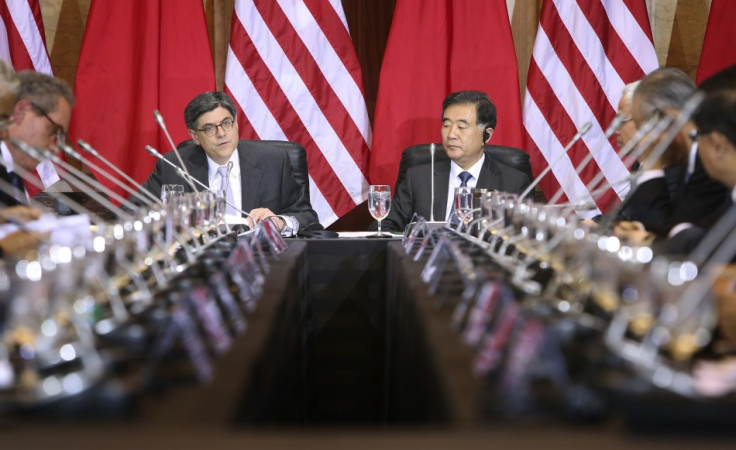US and China Pledge Greater Cooperation on Cyber-Security
Talks between the United States and China on issues of cyber-security have led to both sides pledging greater cooperation, Chinese state media has reported.

The US and China have traded accusations over cyber-spying, with the United States blaming several high-profile attacks on American businesses and media outlets on Chinese hackers.
State newspaper The China Daily called America a "hackers' empire", saying the country spied on not just hostile nations, but its own allies as well.
But talks at the fifth annual US-China Strategic and Economic Dialogue have reportedly achieved a deal to strengthen cooperation.
Chinese media outlet Xinhua said: "The two sides held candid in-depth discussions on cyber security, including the mechanism of a bilateral cyber working group, international cyberspace rules, and measures to boost dialogue and cooperation on cyber security.
"Both sides expressed the willingness to improve the mechanism of the cyber working group on the basis of mutual respect and equality, so that it can play a positive role in enhancing mutual trust, reducing mutual suspicion, managing disputes and expanding cooperation. [They also] agreed to hold an informal meeting at an appropriate time before the next strategic security dialogue."
The talks follow preliminary discussions between US Treasury Secretary Jack Lew and recently elected Chinese President Xi Jinping. Lew had previously said those talks had been "productive" but had promised to press China harder on cyber-security during the Strategic and Economic Dialogue.
Despite US accusations that Chinese hackers were responsible for attacks on both The New York Times and Wall Street Journal, the American government is also facing scrutiny for its own cyber practices.
Former NSA contractor Edward Snowden recently leaked details of the Prism initiative, a government programme which allegedly gave security agencies permission to monitor private communications data belonging to both domestic and foreign citizens.
In addition China has continued to accuse the US of large-scale cyber-spying. Amidst the talks held at the Strategic and Economic Dialogue, The China Daily reported that of 13,408 cyber-threats against China recorded between January and May, 4,062 were believed to have originated in the US.
"It's clear to see the number of attacks and computers affected up to May is still huge. In other words, the situation of online security remains tough," said Du Yuejin, deputy chief technology officer of the National Computer Emergency Response Team and Coordination Center of China.
"It's hard to say from the data whether these threats were made solely for political reasons, but Chinese government websites were apparently targeted more."
"Cyber-security management systems and laws in different countries make cooperation difficult," added Zeng Xinhua, a criminal law researcher at Beijing Normal University.
"If governments do not trust each other, international cooperation will remain difficult and the dream of a safe cyberworld will continue to be a dream."
The US-China Strategic and Economic Dialogue is set to conclude today, 11 July.
© Copyright IBTimes 2024. All rights reserved.







